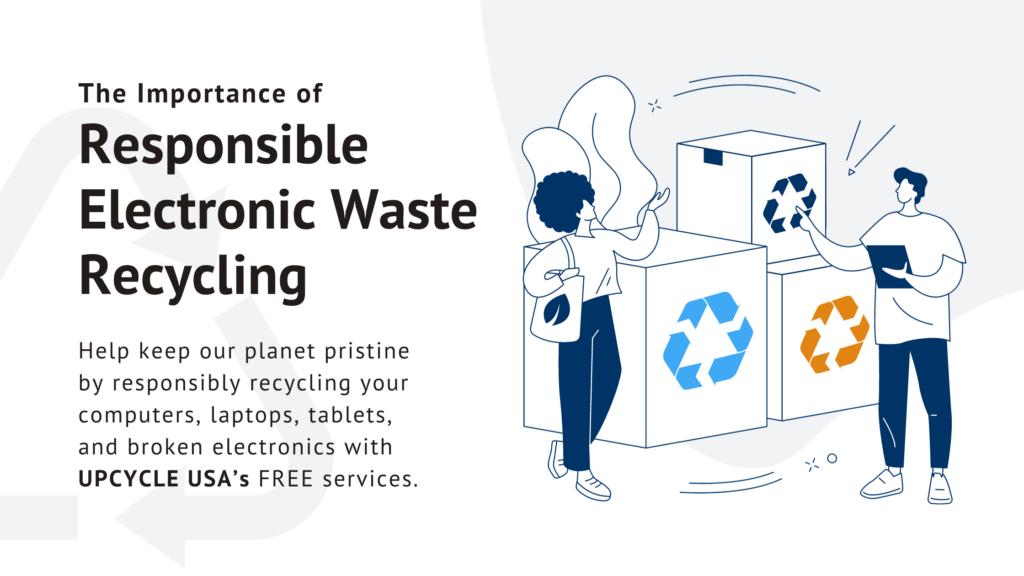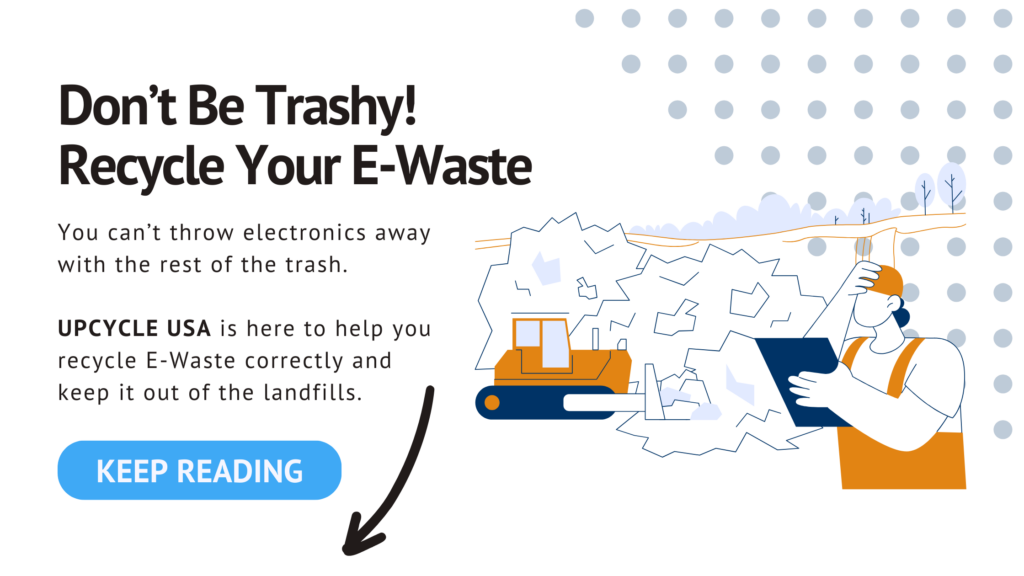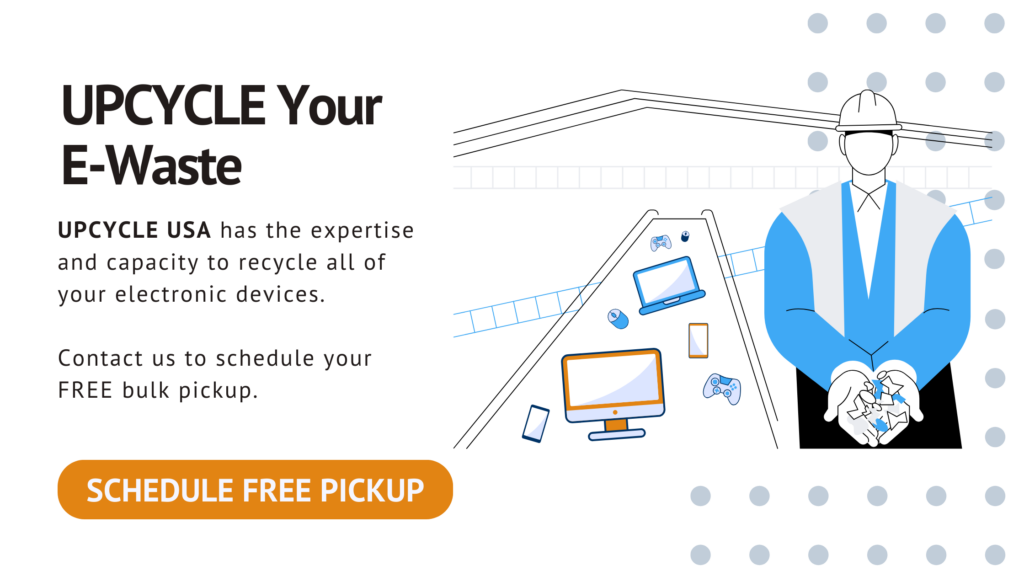Constantly upgrading our technology can have significant environmental consequences. Let Ewaste Pickups explain what electronic waste is, its environmental impact, and why it is crucial to recycle it responsibly.

What is Electronic Waste?
Electronic waste, or E-Waste, refers to discarded electronic devices, including computers, smartphones, televisions, and other electronic gadgets. These devices often contain hazardous materials such as lead, mercury, and cadmium, making their improper disposal a serious environmental threat.
At Ewaste Pickups, we define E-Waste as any electronic device in new, old, or broken condition that has a plug and needs to be discarded.
Electronic Waste Items Include:
- Computers
- Laptops
- Chromebooks
- Tablets
- Smartphones
- Keyboards
- Televisons
- Printers
- Scanners
- Gaming Consoles & Devices
- Monitor Screens
- Computer Servers
- Fax Machines
- Copy Machines
- AND MORE!
Is Electronic Waste Toxic?
Improper disposal of E-Waste contributes to overflowing landfills and unsafe enviornments. As our electronics decompose, they release harmful chemicals into the air and soil, further polluting the environment.
Electronic devices contain toxic materials that can leach into the soil and water, posing a severe risk to human health and the environment. Exposure to substances like lead and mercury can lead to various health issues, including neurological disorders.
To keep your community safe, it’s important to recycle your old or broken electronics through an authorized and certified E-Waste recycling service. Certified E-Waste recycling services are the experts in handling, hauling, recycling, and disposing of electronic waste.

Recovering Natural Resources from Recycled E-Waste
Did you know that your electronic waste can be recovered and repurposed to create renewable energy technologies that help overcome the shortage of raw materials? It’s true!
Inadequate electronic waste recycling causes a steady systematic depletion of natural resources in secondary material recycling and extracting valuable materials.
Electronics manufacturing relies on precious and non-renewable resources like gold, silver, copper, platinum, aluminum, and cobalt. If electronic devices are not recycled responsibly, these natural resources are lost forever, increasing the need for new raw materials and contributing to resource depletion.
The process of mining metals from raw materials is energy-intensive. Recycling e-waste requires significantly less energy than mining and refining new materials, contributing to overall energy conservation. By extracting and reusing these resources, we can reduce the demand for mining and help conserve our planet’s natural resources.

How To Start Recycling E-Waste
Responsibly recycling old or broken electronics is not only required by law but also a crucial step in protecting our environment and conserving valuable natural resources.
If your business wants to clean out your IT storage room and get new electronics, contact Ewaste Pickups. Our Recycling Specialists are available to help you manage your inventory and schedule a time for bulk pickup.




